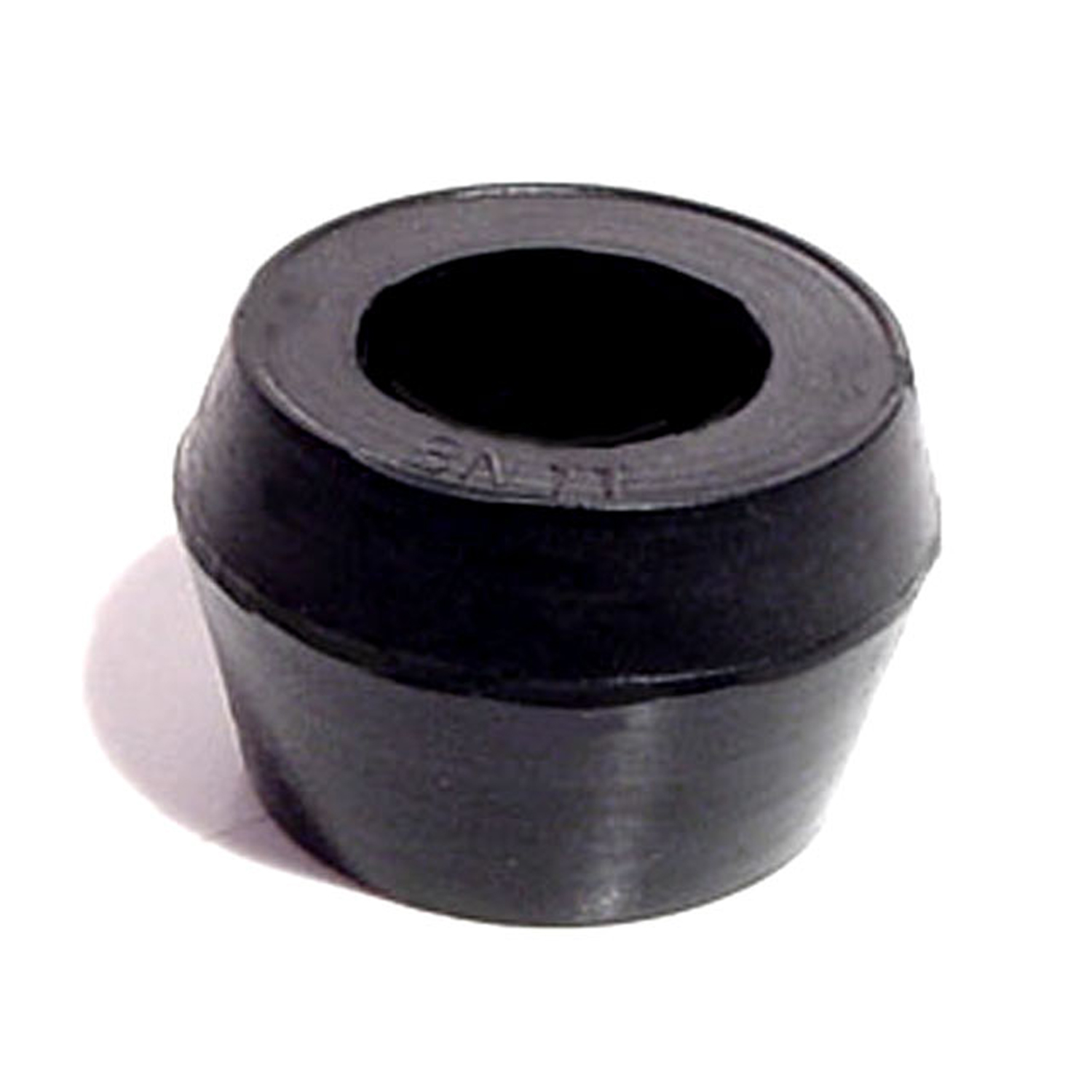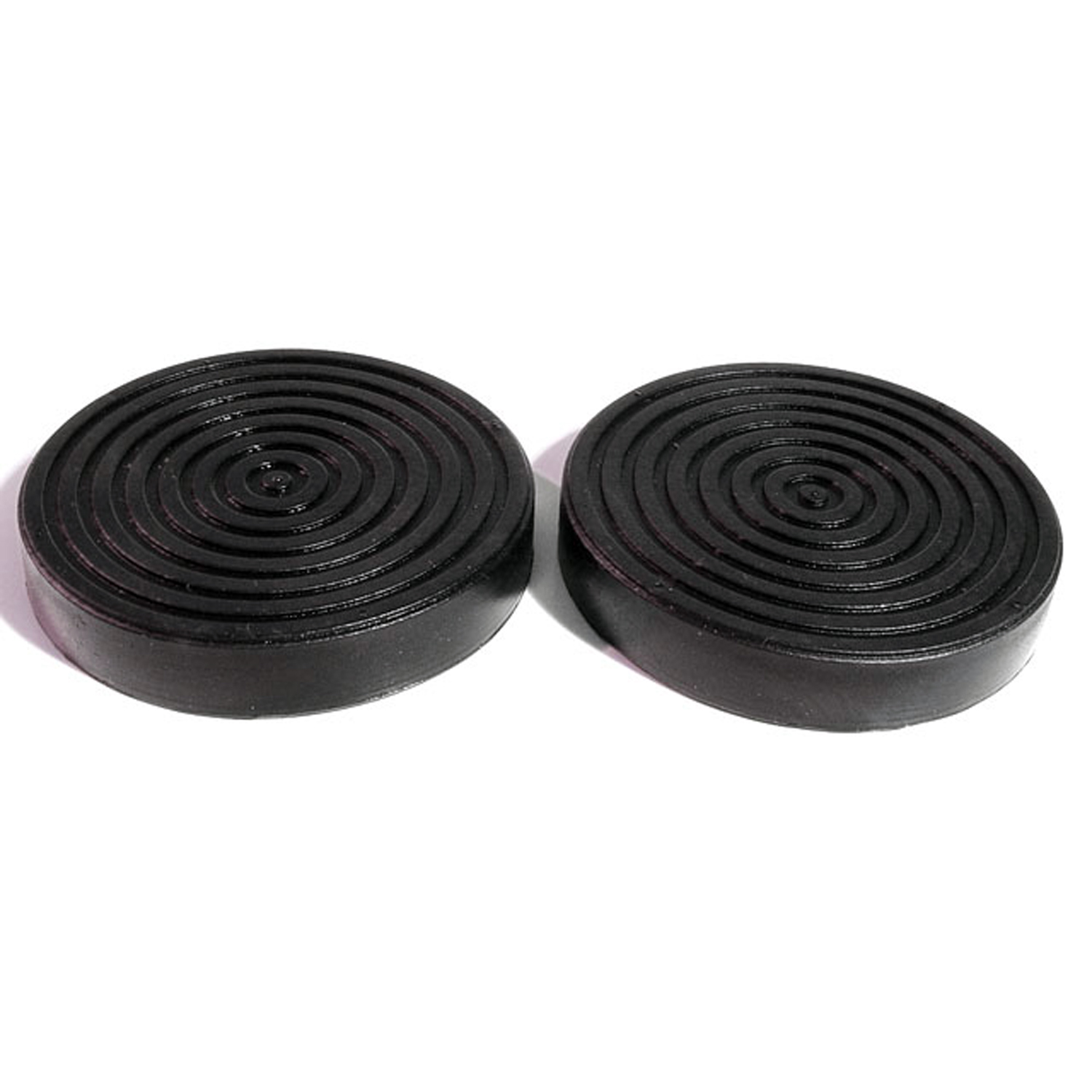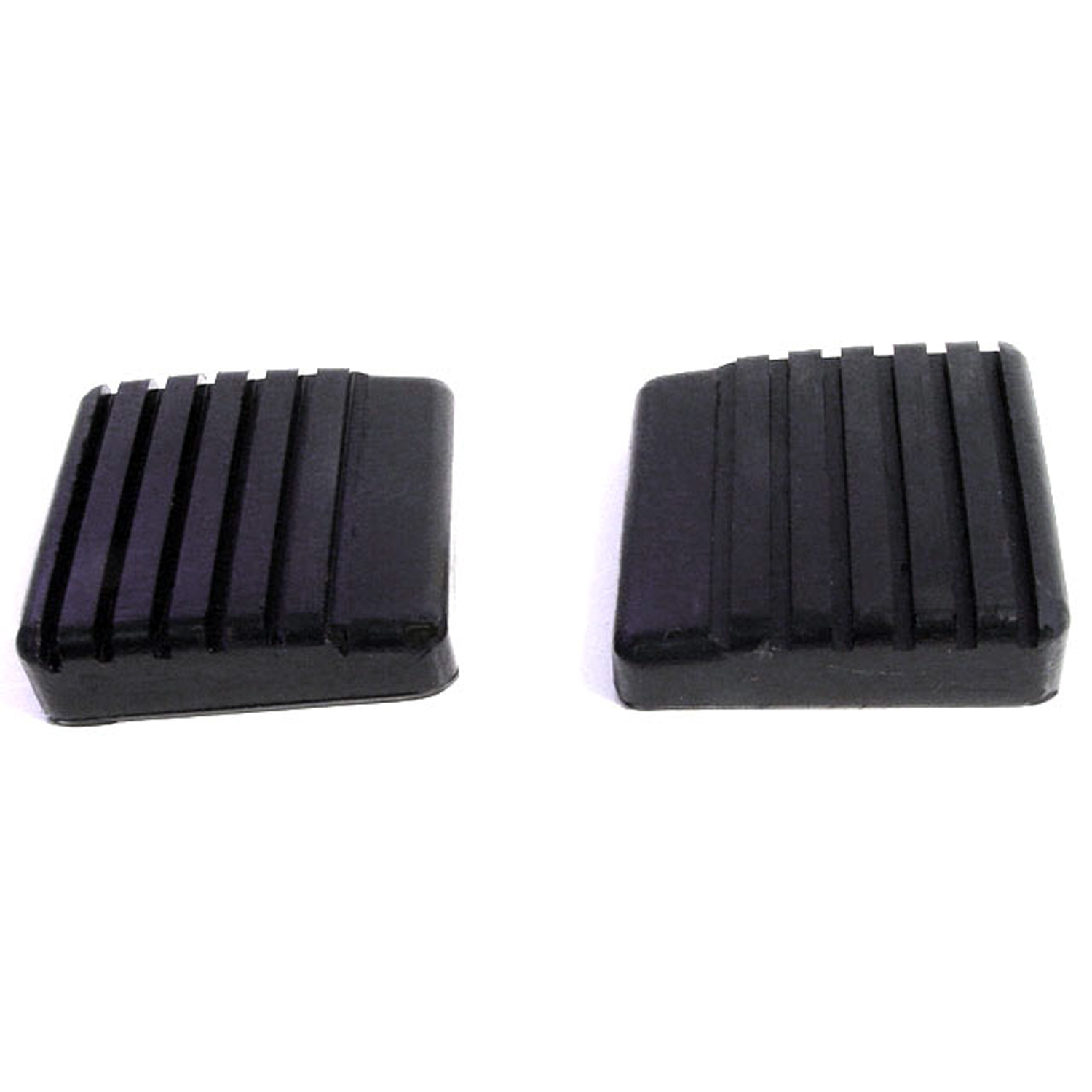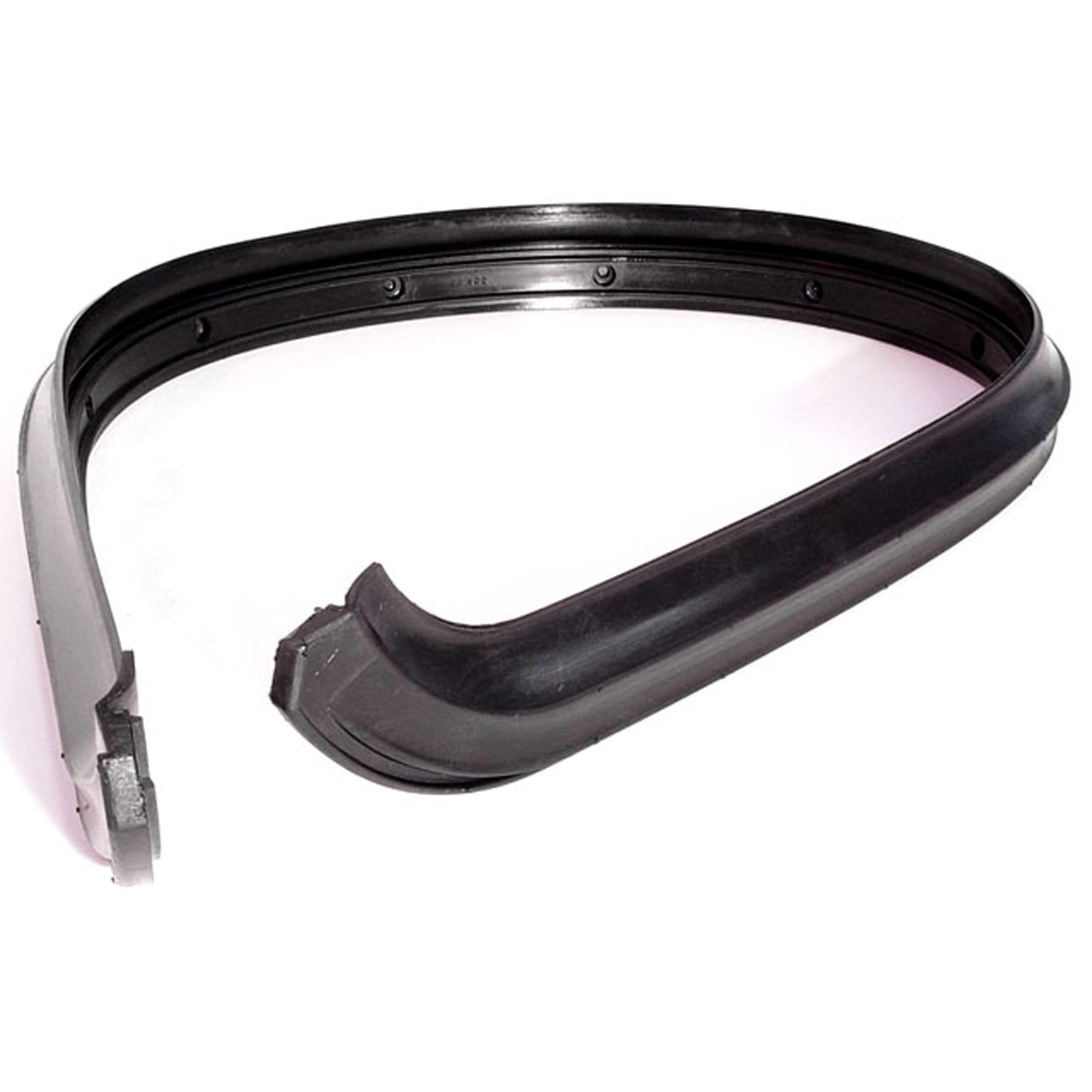Image of 1960 Jeep F4-134, Note: These illustrations use artistic license and may differ from actual historical models.
Performance Metrics
Fundamental Metrics
Emotional Appeal
MMP Rating
| Engine Specifications | |
|---|---|
| Engine: | F4-134 Inline 4 |
| Displacement: | 134 cu in (2.2 L) |
| Horsepower: | Estimated 70-75 hp |
| Torque: | 114 lb-ft |
| Compression Ratio: | Estimated 6.9:1 |
| Ignition System: | Distributor and coil |
| Cooling System: | Liquid-cooled |
| Performance Specifications | |
| 0-60 Time: | Information not available |
| 1/4 Mile Time: | Information not available |
| Top Speed: | Estimated 60-65 mph |
| Transmission and Drive | |
| Drive Type: | 4WD |
| Transmission Type: | 3-speed manual |
| Fuel and Efficiency | |
| Fuel System Type: | Carburetor |
| MPG: | Estimated 15-20 mpg |
| Dimensions and Brakes | |
| Brakes: | Drum brakes |
| Wheelbase: | 81 in |
| Weight: | Estimated 2,200 lbs |
Note: Specifications for classic cars are given to the best of our ability, considering the limited and variant data available.
The Unyielding Legacy of the 1960 Jeep F4-134
The 1960 Jeep F4-134 stands as a testament to rugged functionality and timeless design. Born from the post-war era's demand for durable and versatile vehicles, the Jeep F4-134 emerged as a workhorse beloved by farmers, businesses, and adventurers alike. Crafted by the indomitable Willys-Overland Motors, the F4-134 was a direct descendant of the military jeeps that had proven their mettle on the battlefields of World War II. A unique fact that often surprises enthusiasts is that this model's engine was also used to power generators and welders, showcasing its reliability and adaptability.
Design and Innovation
The exterior of the 1960 Jeep F4-134 exuded a no-nonsense aesthetic, with its flat fenders, upright grille, and round headlights that echoed its military heritage. Inside, the cabin was Spartan but functional, with durable materials designed to withstand the rigors of daily use. Technologically, the F4-134 was ahead of its time with its four-wheel drive capability, a feature that was not yet common in civilian vehicles. Color options were typically utilitarian, with Forest Green and Harvest Tan being popular among the earthy tones offered. The most iconic body style was undoubtedly the pickup version, which featured a practical bed and an optional canvas cover for cargo protection.
Historical Significance
The 1960 Jeep F4-134's impact on automotive design is undeniable. It helped cement the concept of four-wheel drive in the consumer market, paving the way for the modern SUVs and off-road vehicles we see today. Its simplicity and ease of repair set it apart from other vehicles of its time, making it a favorite among those who needed a reliable vehicle that could handle tough tasks without fuss.
Performance and Handling
Performance-wise, the F4-134 was more about torque than speed, designed to haul and tow rather than race. Its top speed was modest by today's standards, but it was its low-end grunt that won over the hearts of its owners. The vehicle's handling was straightforward and honest; it communicated the road's imperfections without complaint and took on windy conditions with a steadfast attitude. Driving the F4-134 was an exercise in mechanical harmony—the thrum of the engine, the tactile feedback through the steering wheel, and the commanding view from the driver's seat created an immersive experience.
Ownership Experience
Owners of the 1960 Jeep F4-134 used their vehicles for a myriad of purposes: from daily chores to weekend explorations. Its maintenance was relatively simple, allowing average owners to perform repairs with basic tools and knowledge. This ease of upkeep contributed to its longevity and popularity among enthusiasts.
Fun Facts
Among the trivia that surrounds the F4-134 is its occasional use in film and television, where its authenticity added to period settings. While not known for breaking speed records, it held records of endurance and reliability in harsh conditions. Criticisms were few but typically revolved around comfort features—or the lack thereof—that were standard in other vehicles of the era.
Collector's Information
Today, the 1960 Jeep F4-134 holds a special place in the hearts of collectors. With production numbers not as high as mass-produced cars of its time, it's considered relatively rare. Current value ranges for collectors can vary widely based on condition and originality, but a well-restored example might fetch anywhere from $10,000 to $30,000 or more at auction. As appreciation for classic utility vehicles grows, the F4-134 has seen a steady increase in value over time.
Conclusion
The 1960 Jeep F4-134 remains an emblem of rugged simplicity and utilitarian design. Its legacy endures in the hearts of collectors and enthusiasts who cherish its historical significance and straightforward charm. As we look back on this classic workhorse, we're reminded that sometimes, the most enduring innovations come from a commitment to functionality and reliability above all else.
1960 Jeep F4-134 Catalog of Parts
 1960 Jeep F4-134 Shock Absorber Grommet. 1" bottom O.D-BN 11Shock Absorber Grommet. 1" bottom O.D., 3/4" high, with 5/8" I.D. Each
1960 Jeep F4-134 Shock Absorber Grommet. 1" bottom O.D-BN 11Shock Absorber Grommet. 1" bottom O.D., 3/4" high, with 5/8" I.D. Each 1960 Jeep F4-134 Clutch and Brake Pedal Pads. 3" Diameter. Pair-CB 61Clutch and Brake Pedal Pads. 3" Diameter. Pair
1960 Jeep F4-134 Clutch and Brake Pedal Pads. 3" Diameter. Pair-CB 61Clutch and Brake Pedal Pads. 3" Diameter. Pair 1960 Jeep F4-134 Clutch and Brake Pedal Pads. Pair-CB 61-BClutch and Brake Pedal Pads. Pair
1960 Jeep F4-134 Clutch and Brake Pedal Pads. Pair-CB 61-BClutch and Brake Pedal Pads. Pair 1960 Jeep F4-134 Windshield to Cowl Seal. 55-1/2" long. Each-CS 102Windshield to Cowl Seal. 55-1/2" long. Each
1960 Jeep F4-134 Windshield to Cowl Seal. 55-1/2" long. Each-CS 102Windshield to Cowl Seal. 55-1/2" long. EachWhy Choose Metro?
For over 100 years, Metro Moulded Parts has been the pinnacle of quality in classic car restoration parts. Our commitment to precision and authenticity in every component ensures a perfect fit and an OEM-level appearance.
- Expert Craftsmanship & Quality: Each part is a testament to our dedication to reliability and perfection, crafted from original designs and thoroughly tested.
- Advanced Technology: We use cutting-edge techniques to create flawless, long-lasting parts that surpass others in performance.
- SuperSoft Sponge – The Ultimate Door Seal: Not only are our door seals 30% softer than competitors', but they're also guaranteed to never leak. They effectively reduce wind and road noise, enhancing your classic car's comfort and driving experience.
- Proudly American: Our parts are a product of American craftsmanship, made in the USA with a spirit of excellence and heritage.
- Unrivaled Warranty: We back our products with a 30-year industry-leading warranty, a testament to our confidence in their quality.
Join us in preserving the legacy of classic cars with parts that are crafted for perfection, not just made.

